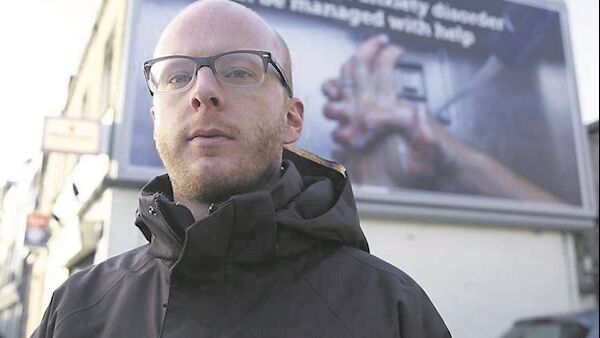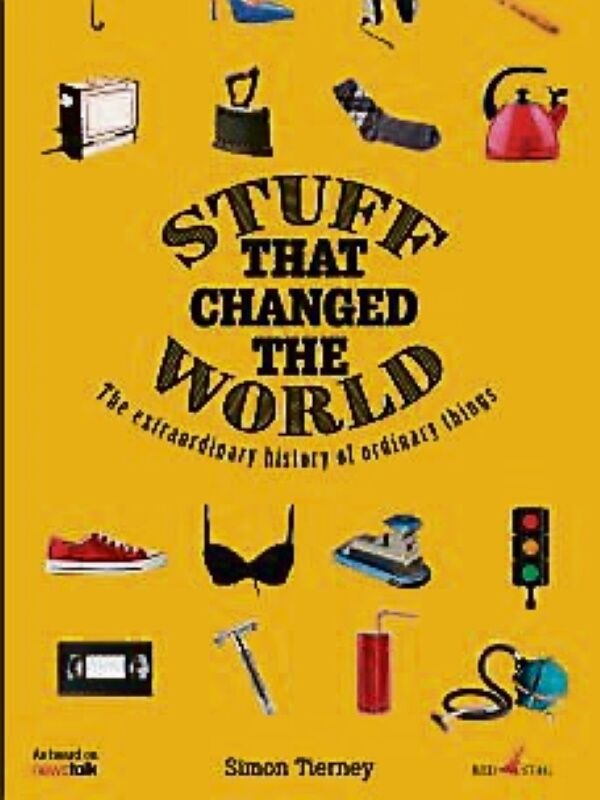Brushing up on stuff: Appreciating the Stuff That Changed the World

Everyday objects can have fascinating histories in their own right and are worth a closer peek as a new book advises, writes
It is probably safe to assume that for most of us the name Clarence Saunders raises little more than a quizzical facial expression.
Yet all of us nonchalantly pluck items from shelves, fridges and ice-cold freezers in what can broadly be referred to as his invention.
In 1916, as Ireland battled to free itself from the shackles of the British Empire, Saunders liberated shoppers from the tyranny of greengrocers with the opening of Piggly Wiggly, the first supermarket. At the time, the Memphis man was laughed at but today we accept his foresight and vision as the norm.
Saunders is just one of the many characters, inventors and innovators that appear in Stuff that Changed the World - The Extraordinary History of Ordinary Things by Simon Tierney. The book is a fascinating insight into the everyday items that we take for granted.
It examines how they evolved, the problems they were responding to and the men and women who took it upon themselves to make our lives just that little bit easier.
Simon will be familiar to followers of Newstalk’s Moncrieff, where every Monday for the last three years or so, he has looked after the weekly slot of the same name.
“I was interested in finding a new way of looking at history,” says the 36-year-old of the original idea for the slot.
“I wanted a unique window into history and the idea of exploring the most mundane and seemingly pedestrian items that we interact with everyday seemed to me to offer that. The idea of an item sort of evolving over time fascinated me.
I think it’s a broader way of looking at history because of course you’re not just discussing the item itself but you’re also examining social context around it.
It is that social context and how Simon uses the item and its development to examine the intricacies of social history and social change that give the slot and consequently the book its appeal.
Early on, for example, we learn how early 20th century advertising for deodorant targeted women with the fear of losing that perfect suitor while smelly men who failed to use the product would lose business deals instead.

While most of us take it for granted, the toilet is not something to be sniffed at either, and there is a fascinating history of its development, both underground and overground, from the time of the Roman Empire right up to the invention of the S-bend in the late 18th century.
The importance of the flush toilet to the development of Western society, particularly when compared to so-called lesser developed parts of the world, is a classic example of how the seemingly mundane has changed our way of life.
It doesn’t stop there. The humble traffic light, first installed in the UK long before the invention of the car didn’t make its way to Ireland until 1937.
In his research, Simon discovered that its installation at Merrion Square caused quite the stir. The Irish Press noting the presence of over a dozen gardaí and tram workers to help confused motorists navigate the new-fangled technology — 70 years on and many cyclists still struggle.
The toothbrush, dishwasher, washingmachine, condom, biscuit, iron, fizzy drink and even the mouse trap, patented no fewer than 4,500 times in the US alone, are all allocated their rightful place in the history of the world.
There are many more.
Simon who hails from Nenagh in Co Tipperary studied History of Art and Sociology at UCD before moving to London to pursue a career in acting. He puts his love of history down to a “fantastic history teacher he had at school” and “an incurable curiosity for the things that are around me everyday”.
“People ask me where I get the topics for the slot, and really my answer is that I can find them anywhere; in the bathroom, kitchen, these inventions are everywhere and they all have a story,” he says. When Mentor Books approached Simon about turning the radio slot into a book, he was somewhat reluctant.
“I’m more of a radio man,” he says.
He should not have worried. Each chapter is short and sweet with lots of delicious anecdotes, eyebrow-raising facts and an often impressive turn of phrase. There is a little bit of Simon in there too and there is something of the famous travel writer, Bruce Chatwin, about his observations. On a visit to Cuba, for instance, he notes how supermarkets seem to have one brandless type of toilet paper due to a lack of competition allowed under communism.
Above all, Simon demonstrates his desire to shed light on the everyday.
“I hope what holds this together is that with each object there is the vision of the inventor. They all seem to have this ability of seeing the future and of knowing what people will want to make their lives more convenient.
"These are people who have made huge differences to our lives, people we often don’t know about and maybe we should know more about. I’m just delighted that I have the opportunity to tell listeners, and now readers, about them.”











